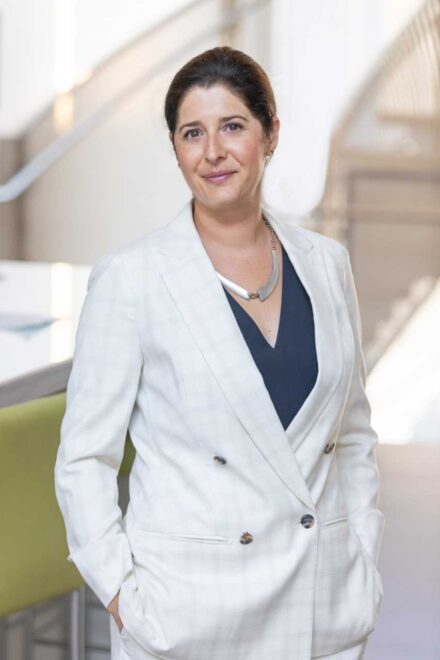The genetic update: Designing and evaluating a patient platform to deliver updated genomic results
Hundreds of thousands of Canadians routinely receive genomic sequencing (GS) of their tumours to identify hereditary conditions and individualize care. However, determining whether a variant causes a disease remains an ongoing challenge as the interpretation of genomic data can change, in some cases having significant impacts on patient care. As new genomic results emerge, researchers and practitioners are advised to recontact patients. This is typically done through registries or mailed letters.
These methods are time-consuming, costly and burdensome for providers. It is often up to patients to reach out to their providers for updates and/or clarifications of GS results. Placing the onus on patients to recontact providers causes them distress, as is having the responsibility to initiate and establish contact with their provider and coordinate an appointment. Patients may feel as if they are ‘in the dark’, un-empowered and lack control over their health. One way to assure patients is to provide them with patient platforms, which are secure online portals that provide patients with convenient 24-hour access to personal health information. Patient platforms alleviate patients’ distress. A patient platform for GS has the potential to facilitate recontact of updated results, to benefit of patients, providers and laboratory geneticists. However, they do not exist, nor have their effectiveness been tested.
Accepting Students
Each year, I admit MSc and PhD students for interdisciplinary research investigating the impacts of adopting new genomic technologies in clinical care.
This research calls on the following methods: qualitative interviewing, surveys, clinical trials, behavioural and psychological outcomes, health technology assessment, health economics, patient engagement, deliberative democracy, mixed methods analysis. Interested candidates should email a CV, unofficial transcripts, and a brief research proposal (max 1 page). Candidates are strongly encouraged to google advice for effective proposal drafting. A strong introductory email is a great first step towards graduate school admission.
Please visit https://

